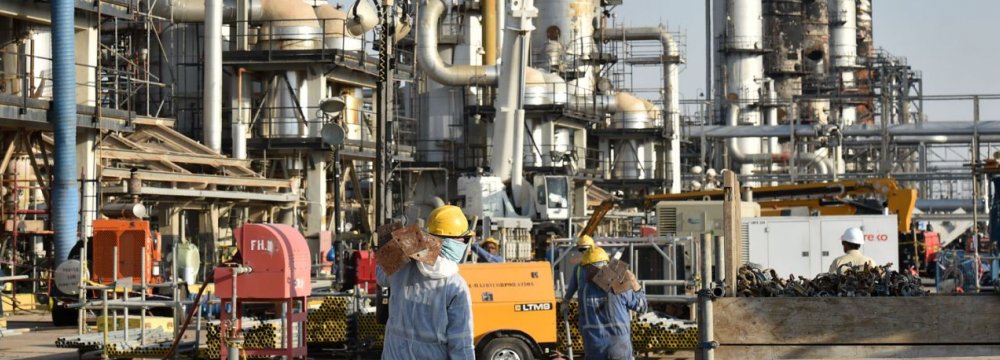
OPEC+ Should Decide on Coronavirus Response Later

"Of course, it will probably be necessary to react, but I think that it would be more appropriate to respond to the situation a bit later on because at the moment there is a lot of uncertainty and a lot of conflicting information," Dyukov said in an interview with the Russia 24 TV channel, S&P Global reported.
Russia has yet to state an official position on making any changes to the current OPEC+ agreement.
The group will meet March 5-6 in Vienna to discuss market conditions and the future of the deal.
Saudi Arabia has lobbied to deepen the 1.7 million bpd production cut to offset the coronavirus outbreak's impact on demand, but Russian officials have yet to commit to any changes.
Dyukov added that while the situation was deteriorating in countries such as South Korea and Italy, data from China indicates they have managed to slow down the pace of the spread of the epidemic.
"But in any case, not so much time has passed...something happens every month on the oil market and if OPEC+ reacts to changes every month this will only lead to destabilization of the situation. Therefore it is better to observe and probably decide on quotas a little later," he said.
In mid-February representatives of Russian oil companies indicated that they supported an extension of the OPEC + production cuts through to the end of the second quarter, but at current production levels rather than with any deeper cuts.



Trump weighs using $2 billion in CHIPS Act funding for critical minerals

Codelco cuts 2025 copper forecast after El Teniente mine collapse

Electra converts debt, launches $30M raise to jumpstart stalled cobalt refinery

Barrick’s Reko Diq in line for $410M ADB backing

Abcourt readies Sleeping Giant mill to pour first gold since 2014

Nevada army depot to serve as base for first US strategic minerals stockpile

SQM boosts lithium supply plans as prices flick higher

Viridis unveils 200Mt initial reserve for Brazil rare earth project

Tailings could meet much of US critical mineral demand – study

Kyrgyzstan kicks off underground gold mining at Kumtor

Kyrgyzstan kicks off underground gold mining at Kumtor

KoBold Metals granted lithium exploration rights in Congo

Freeport Indonesia to wrap up Gresik plant repairs by early September

Energy Fuels soars on Vulcan Elements partnership

Northern Dynasty sticks to proposal in battle to lift Pebble mine veto

Giustra-backed mining firm teams up with informal miners in Colombia

Critical Metals signs agreement to supply rare earth to US government-funded facility

China extends rare earth controls to imported material

Galan Lithium proceeds with $13M financing for Argentina project

Kyrgyzstan kicks off underground gold mining at Kumtor

Freeport Indonesia to wrap up Gresik plant repairs by early September

Energy Fuels soars on Vulcan Elements partnership

Northern Dynasty sticks to proposal in battle to lift Pebble mine veto

Giustra-backed mining firm teams up with informal miners in Colombia

Critical Metals signs agreement to supply rare earth to US government-funded facility

China extends rare earth controls to imported material

Galan Lithium proceeds with $13M financing for Argentina project

Silver price touches $39 as market weighs rate cut outlook

















